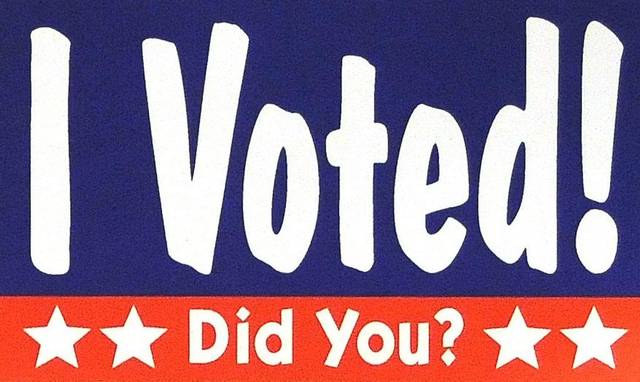Originally published October 25, 2018
Gotta love political ads. My brain hurts. However, I am voting today and there are a few things I’ve noted.

Regarding Initiative 1631 (the carbon fee measure)
Ads will tell you that it excludes big carbon producers from the fee. One being coal-burning power plants. Well, a caveat. It only excludes such pants IF they are scheduled to close by 2025 or otherwise legally bound to comply with emissions standards by 2025.
Ads will tell you that the fund advisory board has no accountability. Not true. There is a tight loop between the state agencies, Washington State tribes, and the board created by the measure. The measure also dictates what percentages of funds must go to what type of investments. This isn’t a free for all. There is also a clause that if it can be shown that the tribes were not consulted and the project adversely impacts their lands (or fishing), there is an immediate halt until things can be sorted out.
The measure also clearly states that the funds are to be used for reduced pollution or to assist affected workers or people with lower incomes. So, if your job is in danger due to this measure, someone is supposed to be supporting the transition to something else.
Twenty-five percent of the fund is to be used to clean up state waters, reduce ocean acidification, address wildfires, and reduce flood risks.
Five percent of the fund is directed to programs that will help relate communities that are facing rising sea levels, provide education to communities and schools regarding climate change, and provide sustainable responses to communities under threat of wildfires or floods.
I’m with Bill Gates on this one – I vote yes.
Regarding Initiative 1639 (firearms)
I was given a heads up on this one by a friend. I agree—this one is a no. There are two reasons I do not like this measure.
The definition of what constitutes a “semiautomatic assault rifle” is sloppy and misleading. Do I think we should control firearms and accessories that permit multiple firings with one trigger pull? Yes. Do I think we should write laws that allow the interpretation to change with the circumstances and that unfairly and incorrectly identify a firearm? Most definitely not.
The second issue I have is the carte blanc handed to state agencies and law enforcement to request information on health and mental health records in the process of determining eligibility. No. Absolutely No. Period. There has been a process in place for decades that permits professionals to report abuse or mental issues to state officials and law enforcement. There is no reason this would not be a sufficient practice to ensure that mentally unstable persons are barred from purchasing firearms. As it stands, certain positions (including a few I have held) are mandatory reporters for child abuse or domestic violence. By law, when you hold such a position, you can be held responsible for consequences. Sex offenders (some who should have never gained that title) are also required to let the world know when they are in the neighborhood. These practices should work just fine for keeping weapons out of the hands of folks who should not have them. If a person wishes to challenge their inclusion in such a list, they can contact the appropriate professional for a re-evaluation. But under no circumstances am I willing to provide access to medical records for random checks by state agencies or law enforcement.
Go back and do a better job, people. For this one, I vote no.
Regarding initiative 940 (law enforcement)
I found this one rather interesting. The standard for “use of deadly force” is modified to include a “good faith test.” The good faith test can only be determined by an independent investigation. That means that if someone is killed or seriously injured, someone outside of the department has to investigate the circumstances and determine if any reasonable officer in the same situation would have acted in the same manner. The initiative also mandates violence de-escalation and mental health training—no matter how long the officer has been on the force, and such training must occur annually.
On this one? I think it is a good start and I vote yes.
Wow, just noticed something else about this state—Washington has an address confidentiality program for crime survivors. You have to meet certain requirements, but you can keep your address off one of the most public databases in the country—and still vote. That would have helped me out for a few decades.
Something else I like. Checking out one of the incumbents and learned that state websites are supposed to be frozen during the election season (May to November). If you want to know campaign stuff you have to go elsewhere.
That’s my short take. The “who” I voted for is only provided through private discussions. You know where to find me.



No Comments